Samsung Galaxy Book 4 Pro Review: Sleek, Portable And Capable
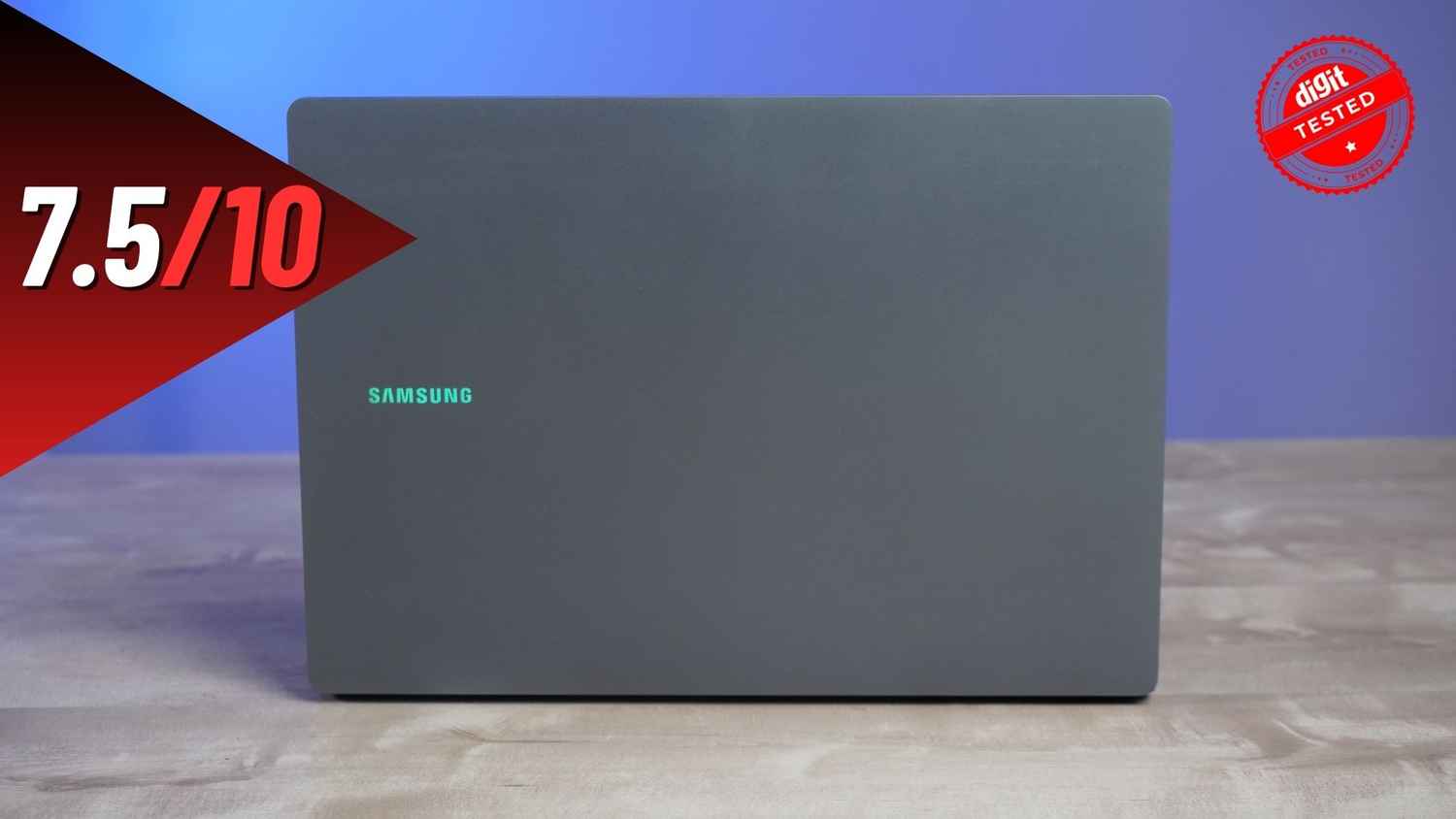
Samsung’s previous attempt at making a thin and light laptop was very successful. However, as is the case with all Windows laptops, OEMs can only work with the CPUs that chip makers have on offer. While last year’s model was fairly good, it was not particularly competitive in terms of performance. At the beginning of this year, Intel released its Core Ultra chips, pushing the X86 architecture forward in both form and function.
So the question remains: How good is the Samsung Galaxy Book 4 Pro in 2024? Given that it has been a few months since the chip’s launch, does it hold up well against the likes of Qualcomm’s Snapdragon X Elite and AMD Ryzen AI 9 HX 370? Here’s the answer.
Samsung Galaxy Book 4 Pro Review: Specifications
Processor: Intel Core Ultra 7 155H
Graphics: Intel Arc iGPU
Memory: 32GB LPDDR5X
Storage: PCIe Gen 4 SSD
Display: 16-inch OLED touchscreen 2880 x 1800 pixels with 120Hz
Weight: 1.53kg
Battery Size: 68Wh
Samsung Galaxy Book 4 Pro Review: Design, Build Quality, Keyboard and I/O
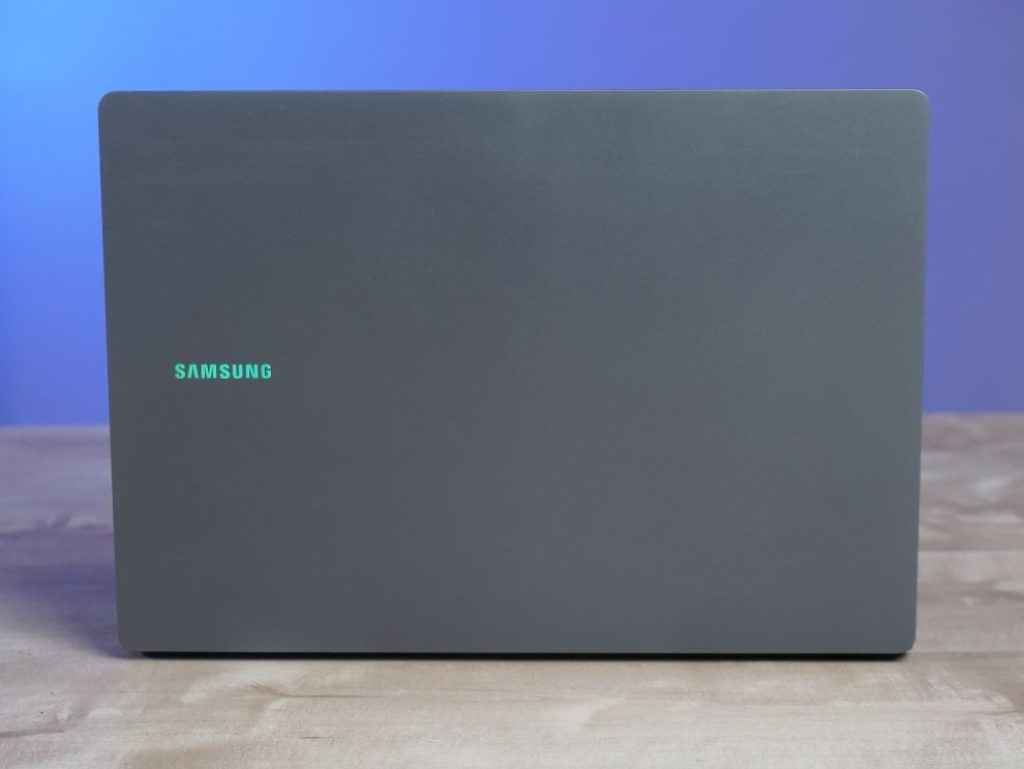
First up, the fit and finish of the laptop are meticulous, with smooth edges and well-integrated components, reflecting high-quality craftsmanship. The use of aluminium in the chassis gives the Galaxy Book 4 Pro a premium and durable feel. Despite its robust build, the laptop remains lightweight, weighing in at around 1.53kg, making it highly portable. The minimalist design also adds to the laptop’s visual appeal. Meanwhile, the overall construction remains sturdy, with no noticeable flex in the keyboard deck or screen.
The aluminium surface, while stylish, can attract fingerprints and smudges easily. Some users might find the edges of the laptop to be a bit sharp. The laptop also has limited colour options.
When it comes to the Galaxy Book 4 Pro’s keyboard, the keys are responsive and well-spaced. The keyboard is also backlit. Additionally, the keys operate quietly, making them suitable for use in quiet environments such as libraries and meetings without disturbing others. However, some users may find the key travel to be a bit shallow.
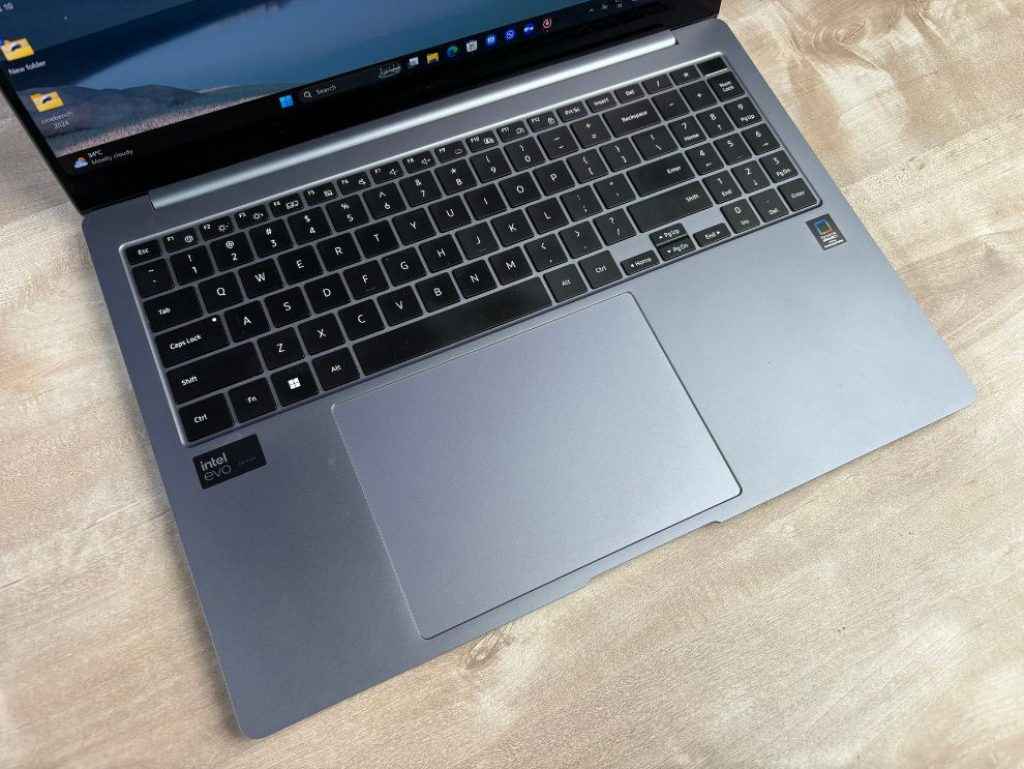
The touchpad on the Samsung Galaxy Book 4 Pro is large and offers a smooth surface, making it easy to navigate and perform multi-touch gestures. It is precise and responsive. Moreover, the touchpad provides accurate tracking and using it is a breeze. But since it is so big, some users with big hands could face sensitivity issues.
The Galaxy Book 4 Pro features two Thunderbolt 4 ports, providing high-speed data transfer, charging capabilities, and the ability to connect multiple 4K displays or a single 8K display. These ports also support USB4. In terms of I/O ports, the laptop has one USB 3.2 Gen 1 Type-A port, which is useful for accessories that require a standard USB connection.
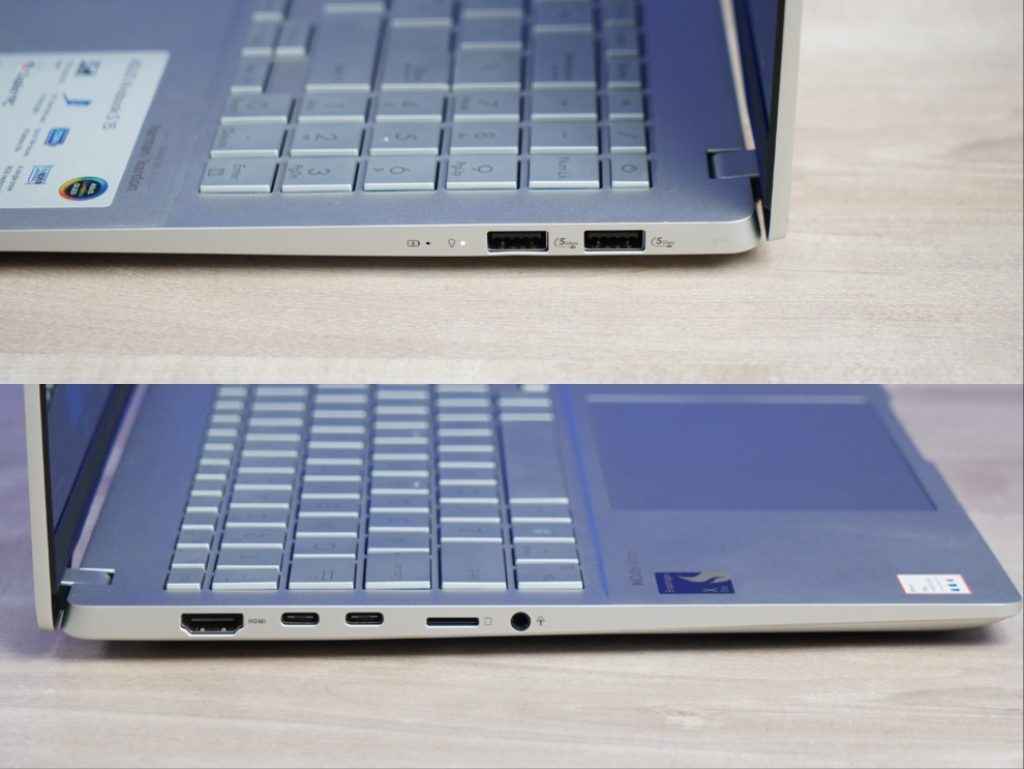
The laptop includes an HDMI 2.1 port, allowing for easy connection to external monitors and TVs for high-resolution video output. For quick file transfers from cameras and other devices, the Galaxy Book 4 Pro has a microSD card slot. A 3.5mm headphone/mic combo jack is available for connecting headphones or external microphones.
Samsung Galaxy Book 4 Pro Review: Screen And Speakers
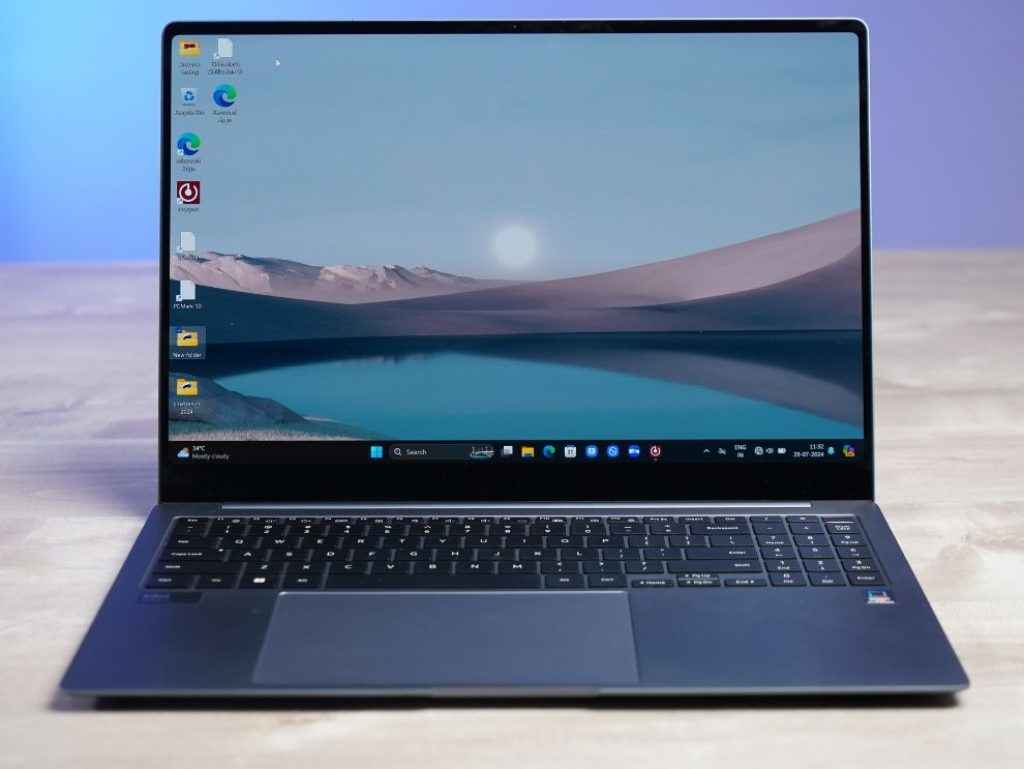
The Samsung Galaxy Book 4 Pro 16-inch model has an exceptional OLED touchscreen display. With a resolution of 2880×1800 pixels, this display looks very crisp. It also has a 120Hz refresh rate which is particularly beneficial for video playback. Although the Book 4 Pro I tested did not have a 36-degree hinge, it did have a touchscreen display. The Galaxy Book 4 Pro’s display also supports Samsung’s S Pen, but I think it better suits the Book 4 Pro 360 variant.
Among the three laptops, the Samsung Galaxy Book 4 Pro stands out due to its balanced features. It offers a peak brightness of 395 cd/m², and excellent colour accuracy with an average Delta E of 1.1. The ASUS Vivobook S15, with the highest peak brightness at 400 cd/m² and a good Delta E of 1.2. The AMD Zenbook S16, while covering 100% of sRGB and DCI-P3, has the lowest brightness at 312 cd/m² and a less accurate Delta E of 2.8. Overall, the Galaxy Book 4 Pro is the most balanced choice, offering great performance and efficiency.
However, the speakers on the Galaxy Book 4 Pro could use some work. The sound quality falls short when compared to the audio experience provided by Apple’s MacBooks. Users who prioritize audio quality for watching movies or listening to music might find the built-in speakers lacking and may prefer to use external Bluetooth speakers for a better experience.
Samsung Galaxy Book 4 Pro Review: Battery Life
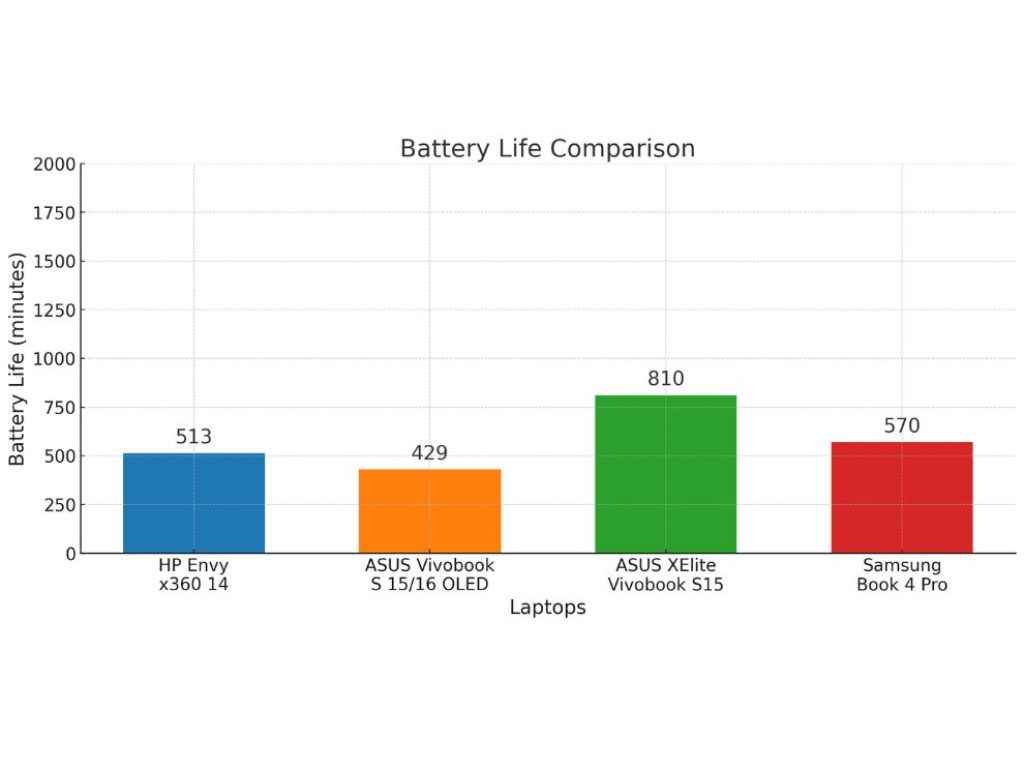
If I compare the power consumption of each CPU – Intel Core Ultra 7, Qualcomm Snapdragon X Elite, and AMD Ryzen AI 9 HX 370 – the Intel Core Ultra 7 caps out at a fixed 28W. The AMD Ryzen AI 9 HX 370 comes in second, sipping 33W, and surprisingly, the Snapdragon X Elite can gulp around 55W in full power mode.
Also, note that the 55W figure is based on the TDP power modes provided by ASUS as HWinfo cannot yet read sensor data from X Elite chips. Even considering that, the Intel Core Ultra 7 is coming out to be the most efficient chip.
As a result, the Intel-powered Galaxy Book 4 Pro scored around nine and a half hours of battery backup, with a 68Wh battery, during the drain test. The AMD Ryzen AI 9 HX 370-powered Zenbook S16 scored eleven and a half hours with an 80Wh battery. The Qualcomm Snapdragon X Elite scored the highest backup of thirteen and a half hours with a 70Wh battery.
My guess as to what’s happening here is that although the Intel chip is more efficient when running at full capacity, the Snapdragon is better at low-power performance. Still, the Galaxy Book 4 Pro delivered very respectable battery life by all accounts.
Samsung Galaxy Book 4 Pro Review: Performance And Benchmarks
The Galaxy Book 4 Pro comes with Windows Co-pilot features, and the most useful ones include an AI-powered assistant that enhances productivity by managing schedules, setting reminders, and retrieving information quickly with intelligent suggestions. The set of features also includes AI-enabled audio mixing in audacity and image generation with the help of Co-pilot.
In terms of the benchmarks in CInebench R23, the Galaxy Book 4 Pro exhibits strong single-core and multi-core performance. The Galaxy Book 4 Pro scored 1727 in single-core and 13519 in multi-core score performance. While it trails behind the AMD Zenbook S16, which scored 1933 in single-core and 14166 in multi-core tests, the Galaxy Book 4 Pro outperforms the ASUS Vivobook S15, which scores 1116 in single-core and 11630 in multi-core tests.
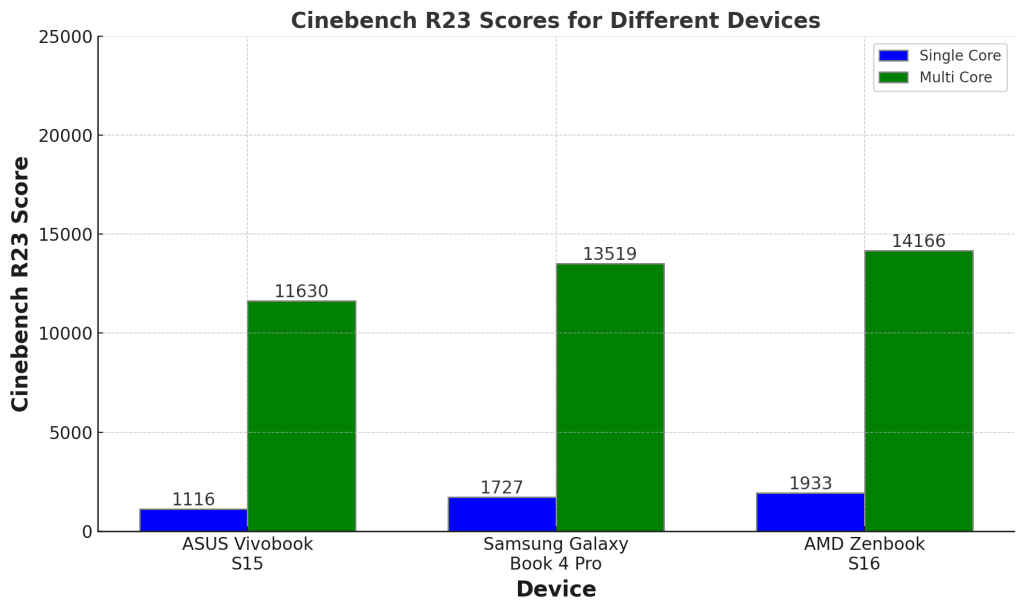
In Cinebench 2024, the ASUS Vivobook S15, equipped with the Snapdragon X Elite, achieved the highest single-core score of 108 and the highest multi-core score of 1114.
The Samsung Galaxy Book 4 Pro, featuring the Intel Core Ultra 7, scored 102 in the single-core test, matching the AMD Zenbook S16. However, it was left behind in multi-core performance with a score of 746, the lowest among the three devices.
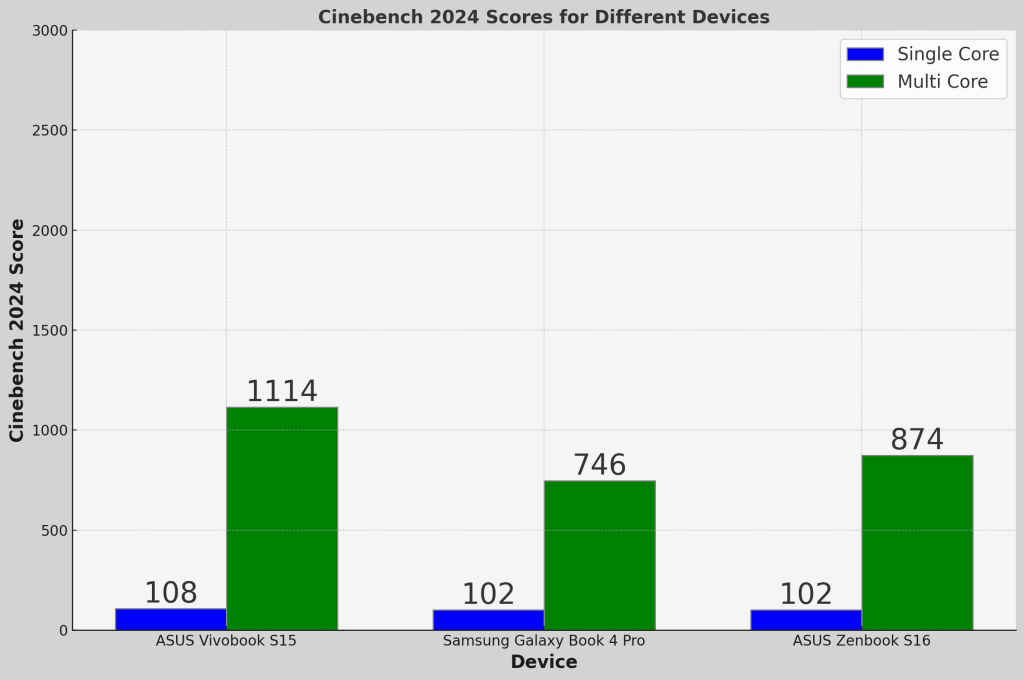
The AMD Zenbook S16, powered by the Ryzen AI 9 HX 370, also scores 102 in single-core performance but surpasses the Galaxy Book 4 Pro in multi-core performance with a score of 874. This places the Zenbook S16 in a middle position, performing better than the Galaxy Book 4 Pro in multi-core tasks but not as well as the Vivobook S15.
In the Wildlife benchmark, which measures overall graphics performance, the Samsung Galaxy Book 4 Pro leads with a score of 22962. The AMD Zenbook S16 follows with a score of 21398, showcasing strong graphics performance but not quite on par with the Galaxy Book 4 Pro. The ASUS Vivobook S15, with a score of 19526, trails behind the other two, indicating relatively lower graphics performance in this test.
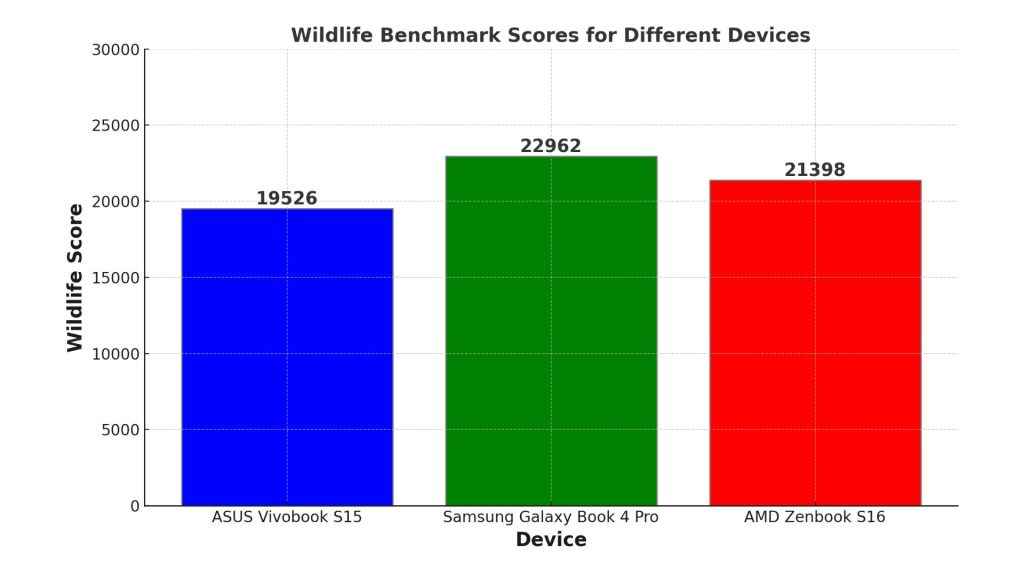
In terms of real-world gaming performance, I saw notable differences across various games. In Shadow of the Tomb Raider, the Galaxy Book 4 Pro slightly outperforms the Vivobook S15 with a score of 45 compared to 42, but it is significantly outpaced by the Zenbook S16, which scores 90.
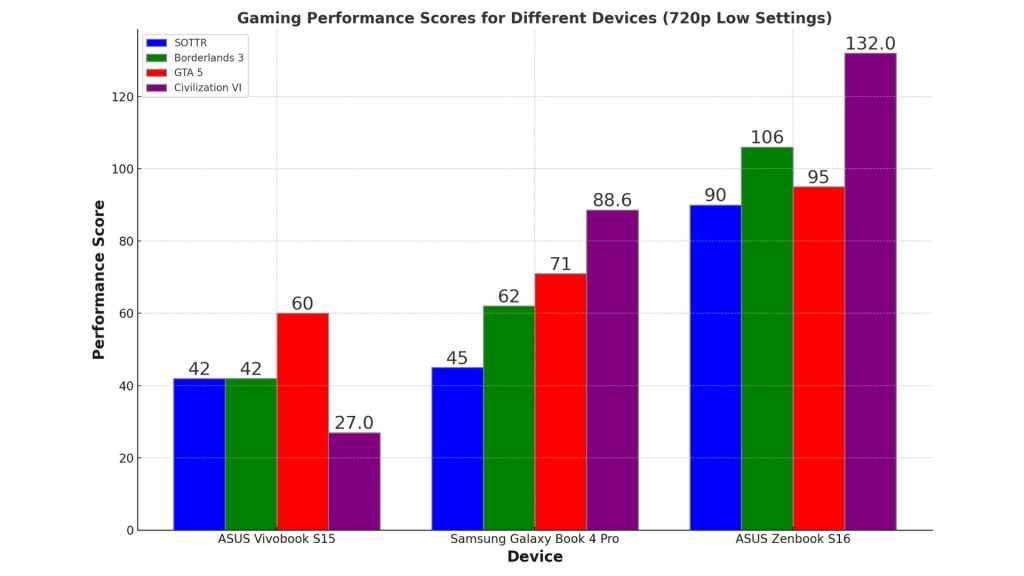
In Borderlands 3, the Galaxy Book 4 Pro shows a substantial improvement, achieving a score of 62, much higher than the Vivobook S15’s 42, though it still falls behind the Zenbook S16’s 106. For GTA 5, the Galaxy Book 4 Pro scores 71, outperforming the Vivobook S15’s 60, but again, the Zenbook S16 leads with a score of 95. In Civilization VI, the Galaxy Book 4 Pro delivers a remarkable performance with a score of 88.6, far surpassing the Vivobook S15’s 27 and coming closer to the Zenbook S16’s 132.
Overall, the Galaxy Book 4 Pro demonstrates balanced and strong performance across different games, significantly outperforming the Vivobook S15 in all tested scenarios but consistently trailing behind the Zenbook S16, which showcases superior gaming capabilities.
Samsung Galaxy Book 4 Pro Review: Conclusion
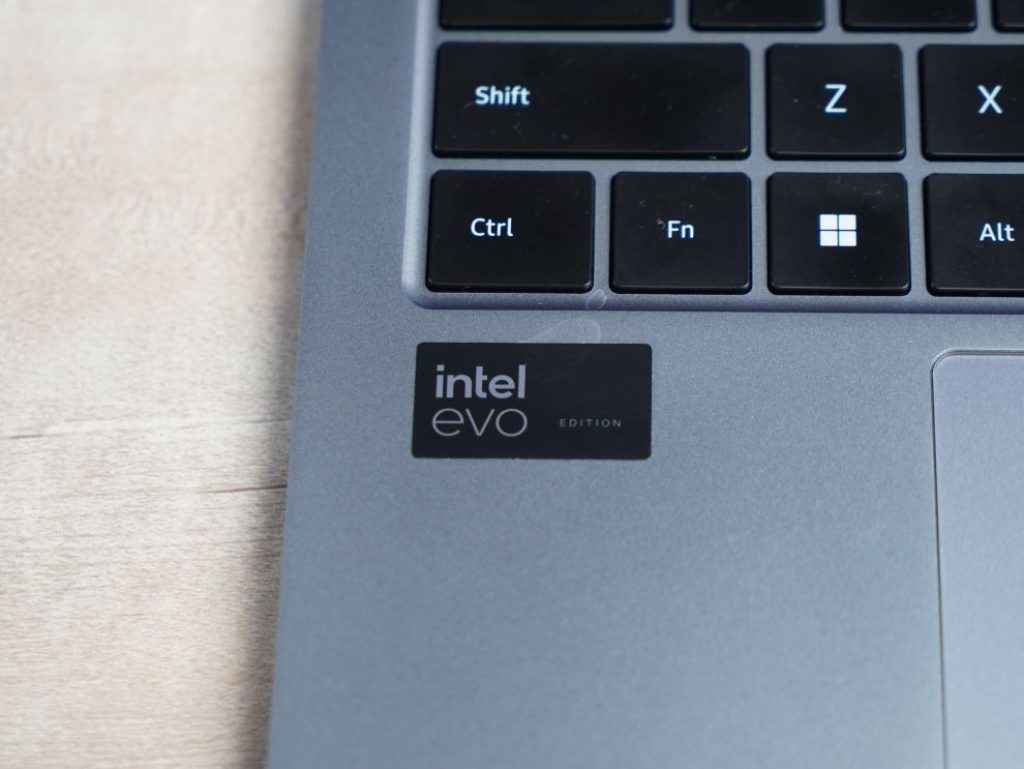
The Samsung Galaxy Book 4 Pro in 2024 is a well-designed, lightweight laptop with a premium build and an exceptional OLED touchscreen display. It features the Intel Core Ultra 7 chip, offering strong single-core performance and balanced capabilities across tasks and games. While the speakers could be better and battery life is good but not top-tier, it still outperforms the ASUS Vivobook S15 in gaming but lags behind the ASUS Zenbook S16 in our comparison. The Galaxy Book 4 Pro is ideal for professionals seeking a sleek, portable device with a high-quality display and reliable performance for productivity and casual gaming.
Yetnesh Dubey
Yetnesh works as a reviewer with Digit and likes to write about stuff related to hardware. He is also an auto nut and in an alternate reality works as a trucker delivering large boiling equipment across Europe. View Full Profile




